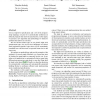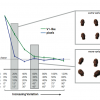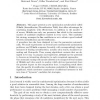1884 search results - page 26 / 377 » Simple Algorithm for Simple Timed Games |
120
click to vote
OOPSLA
2010
Springer
15 years 21 days ago
2010
Springer
Given a high-level specification and a low-level programming language, our goal is to automatically synthesize an efficient program that meets the specification. In this paper,...
161
Voted
FORMATS
2010
Springer
15 years 9 days ago
2010
Springer
We present a general approach to combine symbolic state space representations for the discrete and continuous parts in the synthesis of winning strategies for timed reachability ga...
113
click to vote
SOFSEM
2009
Springer
15 years 11 months ago
2009
Springer
Cuckoo hashing was introduced by Pagh and Rodler in 2001 [12]. A set S of n keys is stored in two tables T1 and T2 each of which has m cells of capacity 1 such that constant access...
147
Voted
CVPR
2009
IEEE
16 years 9 months ago
2009
IEEE
In recent years, large databases of natural images have
become increasingly popular in the evaluation of face and
object recognition algorithms. However, Pinto et al. previously
...
133
click to vote
CP
2004
Springer
15 years 6 months ago
2004
Springer
This paper presents a new optimization metaheuristic called ID Walk (Intensification/Diversification Walk) that offers advantages for combining simplicity with effectiveness. In ad...



